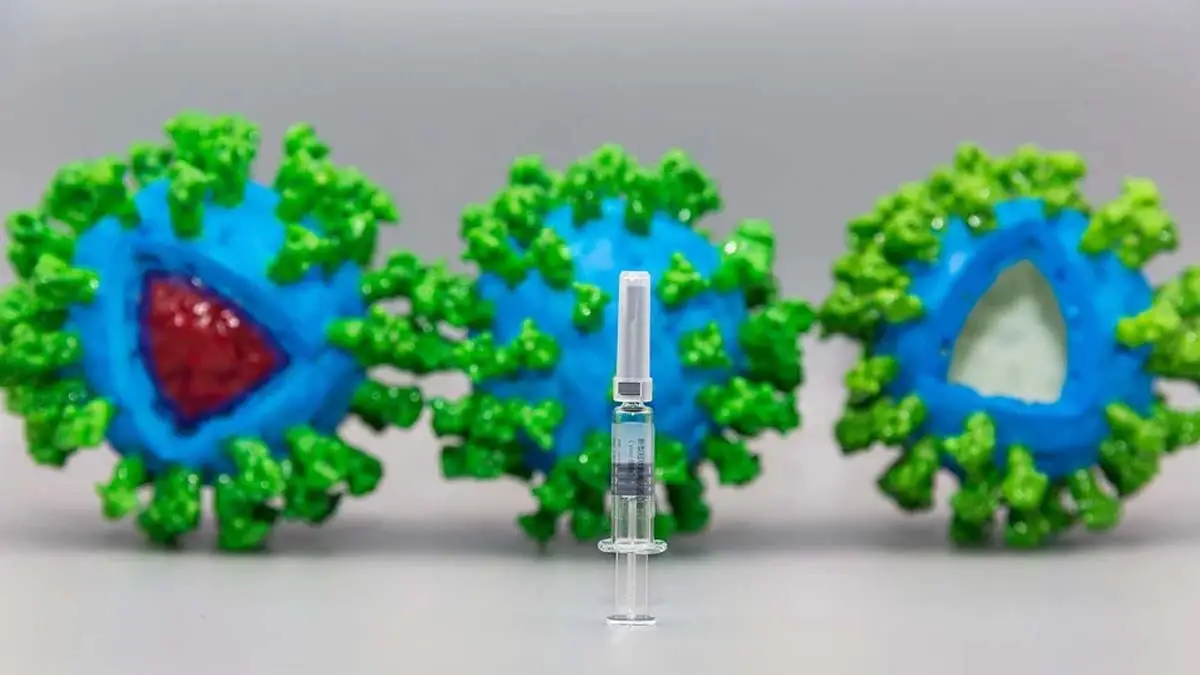
The achievements by the science of Immunology have freed humanity from many extremely dangerous diseases. To find a vaccine, first of all it is essential to decipher how the mechanism of immunity works in the body.
For example, those who have suffered from smallpox no longerwill go through it again in life. Instead, one can get the flu every year. Most explain this phenomenon by saying that the flu virus constantly varies, changes its proteins or, as biologists say, its antigens. Immunity develops with respect to one variety, but the following year another surges.
The explanation is convincing, but it is not the only one. Most people in relation to particular infections belong to genotypes called weak reaction.
What does this mean?
A few years ago, immunologists discovered genes, previously unknown, called immune responses. They determine the strength of the body’s reaction to any foreign body or antigen. Such genes are abundant.
The same organism can react strongly against one antigen and weakly against a second; another, do it completely backwards. If the majority of people, for reasons still unknown, do not have a sufficient number of genes for immunological response, for example, to influenza agents, it is not possible to create a vaccine with the classic methods. It is necessary to learn to stimulate immunity, to transform a genetically weak organism into one of strong reaction.
Active immunity and passive immunity
 A person can become immune to a specific disease in various ways; For some diseases, such as measles and chicken pox, having the disease generally leads to lifelong immunity; Vaccination is another way to become immune to disease.
A person can become immune to a specific disease in various ways; For some diseases, such as measles and chicken pox, having the disease generally leads to lifelong immunity; Vaccination is another way to become immune to disease.
These two forms of immunization, by disease or vaccination, are examples of active immunity, which arises when a person’s immune system functions to produce antibodies and activate other immune cells for certain pathogens. If the person encounters that pathogen again, the specific long-term immune cells will be ready to fight it.
A different type of immunity, called passive immunity, arises when a person receives antibodies from someone else; When these are introduced into the person’s body, the “borrowed” antibodies help prevent or fight certain infectious diseases.
The protection that passive immunity offers is short term, and usually lasts a few weeks or months, but it provides immediate protection.
Background to passive immunity
 In the late 19th century, antibodies were first used to treat disease, as the field of bacteriology emerged. The first success story relates to diphtheria, a dangerous disease that clogs the throat and airways.
In the late 19th century, antibodies were first used to treat disease, as the field of bacteriology emerged. The first success story relates to diphtheria, a dangerous disease that clogs the throat and airways.
In 1890 Shibasaburo Kitasato (1852-1931) and Emil Von Behring (1854-1917) vaccinated guinea pigs against diphtheria, through heat-treated blood products from animals that had recovered from the disease.
The preparations contained antibodies to diphtheria toxin, and protected guinea pigs if, shortly thereafter, they were exposed to lethal doses of diphtheria bacteria and their corresponding toxin. Scientists later demonstrated that they could cure diphtheria in an animal by injecting it with the blood products of an immunized animal.
The researchers then did tests on humans, and were able to show that the blood products of immunized animals could treat human diphtheria. The blood-derived substance that contained antibodies was called diphtheria antitoxin, and public health committees and commercial companies began to produce and distribute them from 1895.
Later, Kitasato, Von Behring, and other scientists turned their attention to treating tetanus, smallpox, and bubonic plague with blood products that contained antibodies.
The use of antibodies to treat specific diseases led to the development of immunizations for diseases. Dr. Joseph Stokes. Jr., and Dr. John Neefe conducted tests at the University of Pennsylvania, under contract with the US Navy. During World War II, to investigate the use of antibodies and prevent infectious hepatitis (which we now call hepatitis A).
Their groundbreaking work, along with advances in separating the antibody-containing blood component, led to many studies on the efficacy of antibody preparations for immunization against measles and infectious hepatitis.
Today the creation of a vaccine that could counteract the actions of COVID-19 is being prioritized and based on this, many laboratories of countries worldwide are working without pause for achieving this urgent medical goal.

